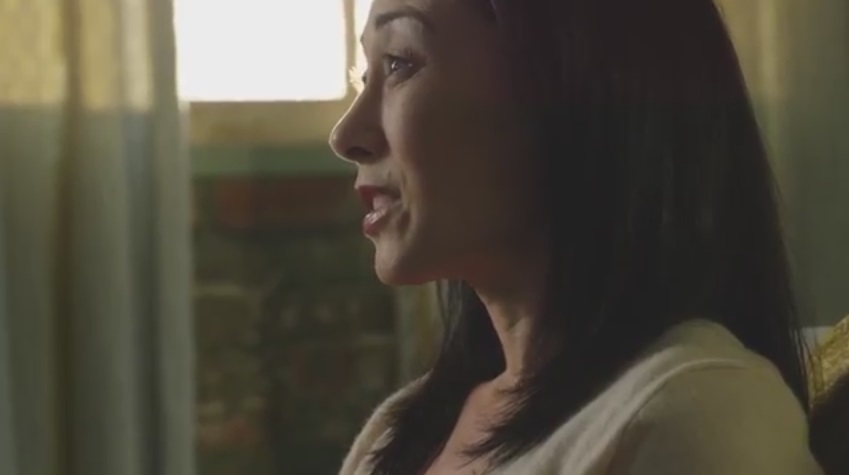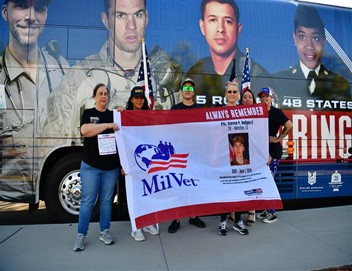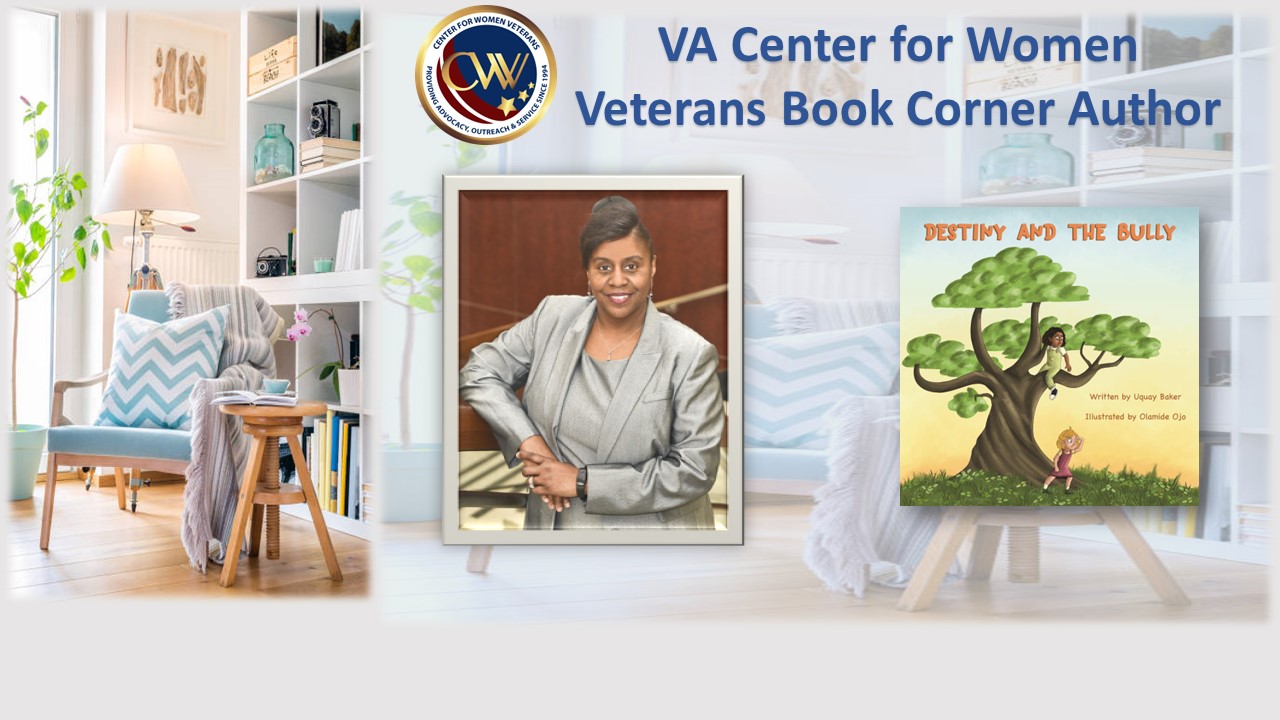When I came home from Iraq in 2004, I struggled to control intrusive memories about awful things I’d seen in the war — and the intense emotions those memories triggered. At the same time, I felt overwhelmed by the pressure of trying to help my then-boyfriend recover from the traumatic brain injury he sustained during the deployment. One night, it seemed as if the only thing I would be able to control was how my life ended, and I sat staring a gun for what felt like an eternity. Luckily, I got help, and today I’m thriving.
The recent VA report on suicide shows that my experience with these challenges was not unique. In 2014, after adjusting for differences in age, the risk for suicide was 2.4 times higher among women Veterans when compared with their civilian counterparts. That year, the rate of suicide among civilian adult women was 7.2 per 100,000; their age-adjusted rate of suicide had increased by 39.7 percent since 2001. Meanwhile, the rate of suicide among women Veterans was 18.9 per 100,000, and our age-adjusted rate of suicide increased by 85.2 percent over the same time period.
VA has been aggressively undertaking new measures to prevent suicide among all Veterans. These include expanding the Veterans Crisis Line, using predictive analytics to identify those at risk and intervene early, expanding telemental health services, providing free mobile apps to help Veterans and their families, and leveraging VA Vet Centers and readjustment counselors. VA is also conducting proactive outreach to Veterans needing care, through channels including Make the Connection and this powerful new suicide prevention PSA.
VA has also taken steps to specifically bolster physical and mental health services for women Veterans:
- VHA’s Mental Health Services held its first National Women’s Mental Health Mini-Residency, during which approximately 200 mental health providers from across VA attended an intensive three-day training on gender-tailored mental health care that addresses women Veterans’ unique treatment needs.
- VA has enhanced provision of health care to women Veterans by focusing on training and hiring designated women’s health providers (DWHPs) at every site where women access VA, with 100 percent of VA Medical Centers and 90 percent of Community-Based Outpatient Clinics having DWHPs. VA has now trained nearly 2,500 providers in women’s health and continues to train additional providers to ensure that women Veterans have the opportunity to receive their primary care from a DWHP.
- VA operates a Women Veterans Call Center (WVCC), created to inform women Veterans about VA’s benefits and services. As of February 2016, the WVCC received 30,399 incoming calls and made about 522,038 outbound calls, successfully reaching 278,238 women Veterans.
These efforts are making a difference. According to the research, we know that women Veterans who are not using VA care have a much higher rate of suicide compared with those who are. In fact, compared with the general population, the risk for suicide among VA users has decreased since 2001 — for both men and women.
Learn more about what VA is doing at an upcoming event, the #ExploreVA Facebook Chat: Suicide Prevention for #WomenVets. In partnership with American Women Veterans (AWV), I will be participating in an hourlong live chat with Dr. Susan McCutcheon, VA’s National Director for Family Services, Women’s Mental Health, and Military Sexual Trauma; and Dr. Caitlin Thompson, VA’s Executive Director for Suicide Prevention. The chat will be on Friday, Sept. 16, 2016, from 2 to 3 p.m. ET. Sign up at http://explore.va.gov/events. (If you miss it, you’ll be able to find the discussion on the American Women Veterans Facebook page later.)
Spread the word; help save a Veteran’s life.
This is the third blog in an 11-week series on the State of Women Veterans. Visit the campaign page to read other entries.
Topics in this story
More Stories
VA remains open for business and is closely monitoring the Change Healthcare (CHC) cybersecurity incident.
Carry The Load, an organization dedicated to remembering the fallen, will visit 34 VA National Cemeteries traveling 20,000 miles along five separate routes covering all continental 48 states known as the National Relay for Memorial May 2024.
This month’s Center for Women Veteran Book Corner author is Army & Marine Corps Veteran Uquay E. Baker, who served in Military Police and communications roles from 1995-2006.







For an intervention to be successful , the individual should want help. Self help group meetings are only 100% successful with an individual in trouble with self & willing to go to any length to save self. Its not likely the VA is going request the Department of Defense to draft individuals in need of mental health.
As a female veteran who has waited 9 months to talk to a therapist only to be told to look outside of the VA for mental health care it is difficult to have any faith in this at all.
To begin with the biggest problem that veterans have in getting their claims approved and the necessary care for their physical and emotional injuries, originates in active service with the Administrative officers! Their main duty assigned to them is to review every recruit’s medical records and REMOVE any information that indicates a deficiency of treatment, extreme change in physical height, weight, or well being that could result in future total disability or unemployability that the Government might be held responsible for??? Unless all medical information is accurately entered into a veteran’s record without changes or false enteries by incompetant doctors or Administrative officers, only injuries that are evident like missing limbs, blindness, or loss of normal physical or emotional responses to environmental obstacles can be addressed by the VA doctors!!! Student Doctors, Psychologists, and Psychiatrists, allowed to practice on veterans; hired from nearby learning Hospitals, only complicate matters by entering False diagnoses or ordering treatments not beneficial to the main cause of the Veteran’s MAIN difficulty and immediate BENEFIT??? This can not only be more detromental to the veteran’s recovery and return to civilian life, but also in many cases, contribute to his early DEATH???
I go to bed EVERY night hoping not to wake up in the morning only because I don’t have the balls to go through with it. But, one of these days, I hope to muster up enough guts to actually do it. I’ve done some research cause, I don’t want to blow my head off (too messy) but, I don’t want to order anything online for fear to mistaken for a t3rr0rist or something. It would be fine if I ordered it and go through with it right away but, if I for some reason decide to hold off or change my mind, theres a whole mess I can deal without. And my wish to wanna end it all has got NOTHING to do with seeing combat so, I feel that’s what these programs are for.
It’s the VA itself that this all stems form. I have a certain physical issue, I know what’s causing it, I know what it is, but the VA won’t listed to me. I tell them my symptoms but they know better. I’ve been living in this body for 49 years but…they know better after a 5 min diagnoses (if that) And Lord forbid I see one of those interns from Emory, They don’t care. All they wanna do is just fill they’re quota, to say they’ve seen a patient.
So, thank you VA for all your support. Hopefully, one of these days I’ll have the guts to pull the trigger which, it might boil down too.
Joan, you didn’t leave any direct contact info, but please consider calling the Veterans Crisis Line at 1-800-273-8255 press 1 to talk with someone at any time. You can also chat online at https://www.veteranscrisisline.net/.
The VA is still not recognizing the Organic nature of many with suicide ideation. Look up “anosognosia” and imagine getting rid of the demon sabotaging your productive efforts without ever having the “demon” identified.
Its about time and while we are at it lets get congress to actually support veterans with real money to support veterans the way they support the wars that created we veterans.
I’m a psychologist and have worked with Viet Nam vets and would love to contribute my knowledge and skills to support vets in need of support but so far have been unable to get anyone to hire me because I am retired and no longer licensed but I have all the skills and knowledge to work with anyone who is in need of encouragement and support to release the trauma, see the gifts they have and open to a whole new life.
So if you can use me in some way, please let me know.
Donald G Theiss
Denver, Co